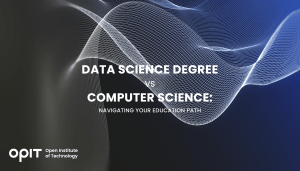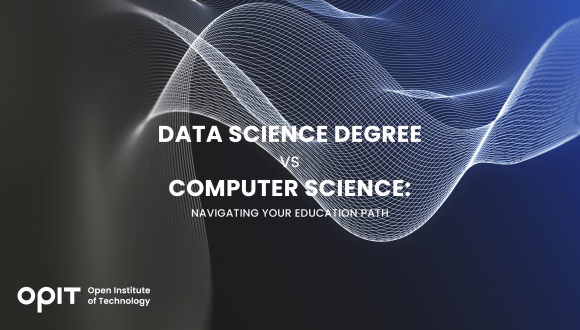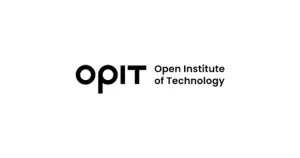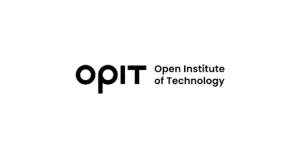

What you study typically dictates your future career. Picking an academic subject is a decision that pairs your passion with practicality, particularly in the computer science and data science fields.
If you’re at a crossroads between choosing one or the other, think about which path aligns with your interests and gives you the best chance of building a bright digital future.
Understanding the Core of Computer Science
Computer science is the backbone of technology. This field prepares you for understanding how software and systems work. It teaches the basics of coding and the complexities of algorithms and network security, all within the same field.
It’s a broad discipline with a knack for problem-solving and innovative thinking. When you master it, you might be crafting the next big app or securing cyber spaces for major companies.
Diving Into Data Science
In contrast, data science zooms in more closely on the digital age’s most precious resource: data. A degree in data science equips you with the knowledge to sift through mountains of information and extract insights that can be used in various industries. For example, it could help healthcare professionals uncover patterns in patient care, sports agents devise new strategies based on big data, or businesses to plan out a targeted marketing campaign.
Data science is about pattern recognition, predictive modeling, and telling stories through data visualization. It’s where statistics meet strategy and empower those in decision-making positions with actionable intelligence.
Comparing Curriculums: Computer Science vs Data Science Degree
Both degrees share a foundation in math and analytical thinking in terms of curricula. Regardless, they have distinct differences:
- Computer Science students are immersed in programming languages, software engineering principles, and computing theory. Their tasks consist primarily of building, designing, and optimizing systems.
- Data Science coursework, on the other hand, mixes together statistics, machine learning, data visualization, and ethical considerations in data handling. It focuses on the lifecycle of data analysis, from collection to communication.
- Each curriculum imparts the basic and advanced technical skills and fosters critical thinking. Once they graduate from either course, graduates will have the means to handle complex problems with creative solutions.
Career Trajectories: Data Science Degree vs Computer Science
Graduates from both fields are in high demand, but the roads they travel can look quite different.
- Computer Science aficionados might be developing software, protecting users against cyber threats, patching and upgrading existing systems, or designing new computing hardware.
- Data Science experts are likely to take on roles like data analysis, predictive modeling, or AI and machine learning engineering.
Fortunately, neither choice will leave you wanting in terms of salary. The sectors are thirsty for the talent and prepared to pay well for the best talent. The salary shouldn’t affect your choice, but whether your passion lies in creation versus analysis.
For instance, in Germany, you’re looking at an average salary of about €50,000 ($54,635) as of 2024. When you compare these numbers to the tech field in the U.S., salaries in countries like the U.K., Poland, France, Germany, and Spain range from 34% to 63% of what their counterparts make in the U.S. If you’re in the tech industry in Europe, what you take home can vary quite a bit depending on where you are.
In the U.K., the average salary for data scientists as of 2024 is around $67,254 per year, with potential additional compensation bringing it up to $79,978. Meanwhile, in Germany, the median salary for a data scientist is just slightly less, around €66,000 ($72,111) per year.
Educational Prerequisites and Learning Outcomes
Before enrolling into either of these fields, you must have a solid base in mathematics and a talent for problem-solving. More specifically, computer science aspirants should get ready for high-level programming, so basic familiarity with programming logic, languages (any would help), and algorithms will do wonders. Just as importantly, you should also have a strong grip on logical reasoning.
Furthermore, data science enthusiasts will need to have a solid understanding of statistics and a knack for critical thinking. Graduates from both fields emerge as tech-savvy professionals who can tackle tomorrow’s challenges with a deep understanding of tech nuances.
OPIT’s Approach to Technology Education
OPIT is at the heart of technology education. The service offers MSc in Applied Data Science and AI and BSc in Modern Computer Science. Both programs have the future in mind, yours and of that of the tech industry as a whole. The programs mix theoretical knowledge with hands-on experience to meet the demands of the job market.
They diverge in focus but converge in aim: to forge skilled professionals ready to make an impact. Best of all, the programs set themselves apart from the traditional classroom education with personalized study that you can do at your own time, without constrictive exams. Instead, the programs focus on continuous learning.
Making Your Decision: Factors to Consider
Now, while you might have a better understanding of what each field represents, there’s a lot more to it. The choice between data science and computer science hinges on a few factors:
- Decide if you are more interested by the prospect of developing software or deciphering data patterns.
- Think about where you see yourself in the tech industry and the type of projects that excite you.
- Keep an eye on the future, understand which skills are likely to remain in high demand, and whether they suit you.
- These considerations can put you on track for a degree that fuels your passion and boosts your career prospects.
Two Options, One Choice
Data science and computer science degrees are both lucrative, in demand, creative, and engaging careers. More than simply academic choices, they will determine what professions you can enter and your future opportunities. Ultimately, your interests, skills, and strengths should decide which path you take. Both pay well and both reward hard work, so choose wisely. Either way, the possibilities are vast and continue to grow by the day.
Related posts


Source:
- Il Sole 24 Ore, published on June 23rd, 2025
At its core is a teaching heritage made up of 131 courses, 3,500 hours of video, 1,800 live sessions
Have questions?
Visit our FAQ page or get in touch with us!
Write us at +39 335 576 0263
Get in touch at hello@opit.com
Talk to one of our Study Advisors
We are international
We can speak in:


